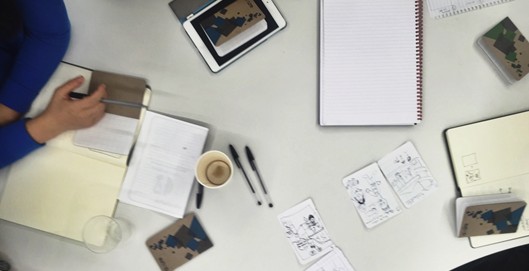
Last week I told you about how I’m not really into resolutions and how I much prefer setting a focus or theme for each month (read more in this blog post). My January theme is “productivity” and so far it’s going really well.
One way to make sure you stay on track is to have frequent check-ins, each month or each week. This helps you stay on track and also have more opportunities to check in with yourself and adjust course if necessary. To help me do this, here’s what I did: every morning last week, I wrote on a post-it note the top 4 things I had to do that day and stuck it on my laptop. I have project planning software, but it’s easy for the essentials to still get lost.
This act of writing out the top 4 things for the day is powerful and helped me stay focused and also celebrate at the end of the day.
How are you doing with yours? I’d love to hear about it, just comment below and tell me!
I recently read an article that said, “the concept of being a UX Designer is becoming so pervasive it will soon disappear.” It’s a bold statement. I see the point the author was trying to make. They were trying to say that everyone on a team has an impact on the experience that someone has with the product. But, Because of this, the role of a UX Designer is changing – not going away.
It’s great that more and more people in organizations are recognizing the value of UX and how their specific role can contribute to it. The awareness of their influence is critical to their ability and motivation to be a part of the UX process and determine how their expertise and department or team can help craft a better experience.
So how does this impact UX designers? What does the role of a UX designer look in a time when more and more people in an organization and team have the capacity to influence and shape a customer experience?
There still needs to be someone who owns the experience. Someone still needs to help shape the vision and make sure all the touchpoints in an experience are aligned. I think the role is quite similar to how the conductor leads the orchestra — interpreting the score, setting the mood, crafting the musical journey.
In the future, I believe UX designers must be able to go beyond the basics, get out of the deliverables business, and become expert facilitators, collaborators, and communicators. UX designers will function as instigators and implements – dipping in and out of various teams to help shape the experience. They will be the visionary – the glue that holds the experience together. What do you think?
How exactly are UX designers supposed to learn these skills? I’m working on that. So stay tuned for an exciting announcement in a few weeks.